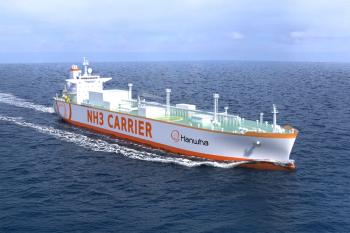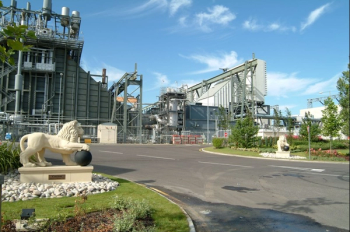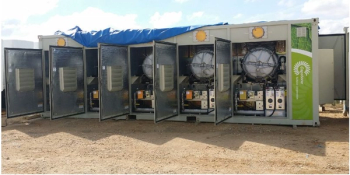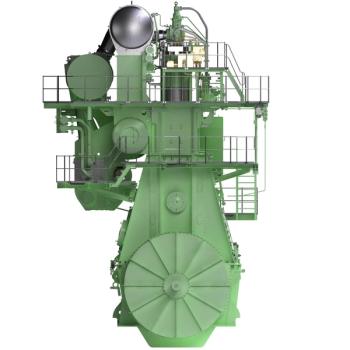
MAN Energy Develops IMOKAT II Catalyst to Reduce Methane Slip
IMOKAT II is an oxidation catalyst that aims to reduce methane leakage by 70% in four-stroke engines.
MAN Energy Solutions is in the process of developing an oxidation catalyst that will reduce methane slippage for four-stroke engines. The oxidation catalyst is called IMOKAT II and was synthesized at MAN Energy’s headquarters in Augsburg, Germany—the catalyst is currently being tested at the company’s facility in Frederikshavn, Denmark.
The oxidation catalyst project, funded by the German Federal Ministry for Economics and Climate Action, will explore the operational experience of a pre-turbo methane-oxidation catalyst to reduce methane emissions by 70% at a 100% load. IMOKAT II has been implemented in a test engine with a goal of reducing methane emissions for full-scale engine operation in the field. The catalyst will be field tested aboard a vessel in Q1 of 2024.
“Part of the project involved studying different approaches to methane reduction. Previous attempts to use precious-metal catalysts have resulted in the catalyst elements themselves becoming significantly expensive,” said Hans-Philipp Walther, Head of Exhaust Gas Aftertreatment, MAN Energy Solutions. “Additionally, due to poisoning, you either have to use a lot of such material or install additional technology to protect it. IMOKAT II is therefore not only more robust but also more economical and requires less installation space.”
The catalyst is sulfur-resistant and lacks precious metals, allowing for the material to be pre-heated in diesel mode prior to gas operation. Diesel pre-heating differs from the process of a cold catalyst—a cold material would not perform optimally and methane leakage may occur.
“The greatest challenge to developing this catalyst is reaching the highest conversion rates since engine and catalyst must be optimized together. Another significant hurdle is optimizing the dynamic behavior of the engine with a catalyst applied, especially if the catalyst is cold. Therefore, a bypass flap and additional software functions will be necessary,” Walther added.
MAN Energy conducts a pre-turbocharger catalyst integration due to the favorable exhaust-gas pressure and temperature level. Pre-turbocharger catalyst integration is a more complex process than post-turbocharger installation, as is found with selective catalytic reduction (SCR).
Newsletter
Power your knowledge with the latest in turbine technology, engineering advances, and energy solutions—subscribe to Turbomachinery International today.




